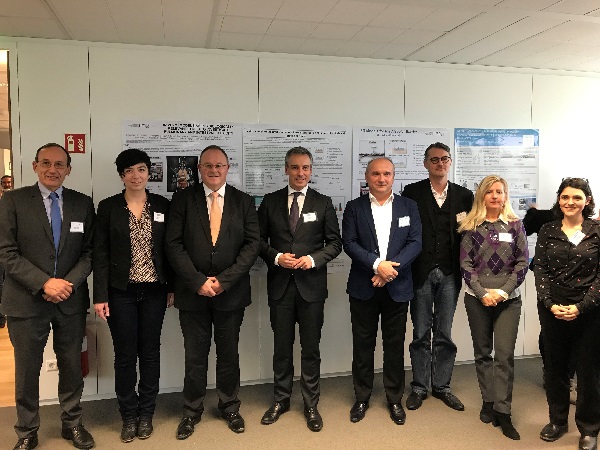 Credit: MA
Credit: MA
On Wednesday, Luxembourg's Ministries of Agriculture, Viticulture and Rural Development, of Health, and of Higher Education and Research hosted the "First Luxembourg 3R Symposium", dedicated to the principles of replacing, reducing and refining animal testing.
Various internationally renowned researchers and representatives of animal welfare associations gathered for this scientific conference aimed at promoting the 3R principles of "replace, reduce and refine" in the context of animal experiments.
On this occasion, Romain Schneider, Minister of Agriculture, Viticulture and Rural Development, and Claude Meisch, Minister of Higher Education and Research, who chaired the symposium, highlighted that: "The final objective of the 3R principle is the progressive elimination of animal experimentation and the replacement by non-animal alternative methods that are scientifically validated".
This platform also provided participants with the opportunity to exchange knowledge on scientific progress in the 3R domain at the national and European level, as well as on best practices to advance the integrity, quality and dissemination of research data. In this context, Minister Schneider pointed out that Luxembourg is one of the EU Member States with the most protective animal rights legislation.
Indeed, animal testing is subject to rigorous control throughout according to Luxembourg regulations, which are also based on the principle of 3Rs. For each application for authorisation, the competent services of the Ministry of Agriculture, Viticulture and Rural Development, in close collaboration with the relevant services of the Ministry of Health, examine whether the project justifies the use of animals, and it is designed so as to ensure, during its course, the most respectful conditions of the animal based on the 3Rs principles. When an alternative method is available, the use of animals must be imperatively replaced.
Minister Meisch noted that many medical advances have been made through animal testing and the focus today is on minimising the suffering that animals may experience during laboratory studies.
Although the final objective of the legislation in force in Luxembourg is the gradual elimination of animal experimentation by alternative methods, the relevant ministries maintained that it is not yet possible to get rid of it entirely, since alternative methods are not yet ready. In Luxembourg, no primate, pet (cat, dog, rabbit and ferret) or livestock is used in experiments, which are limited exclusively to zebrafish, mice and rats. Moreover, the use of animals for cosmetic purposes or for the development of tobacco products is strictly prohibited. In addition, researchers have succeeded, through the application of the Reduction and Refinement method, to reduce the number of animals used for scientific purposes, partly as a result of advanced imaging technologies that also offer a better quality of scientific results.
The ministries also emphasised that the investment of the scientific community in Luxembourg in alternative non-animal methods and research projects on the principle of 3Rs aimed at replacing animal experiments by numerical simulations has been internationally recognised and received various prizes. Moreover, for the Luxembourg Government, it is considered essential to reduce the animal experience to the strict minimum while ensuring a high quality of scientific results and respecting the welfare of animals used in research.








